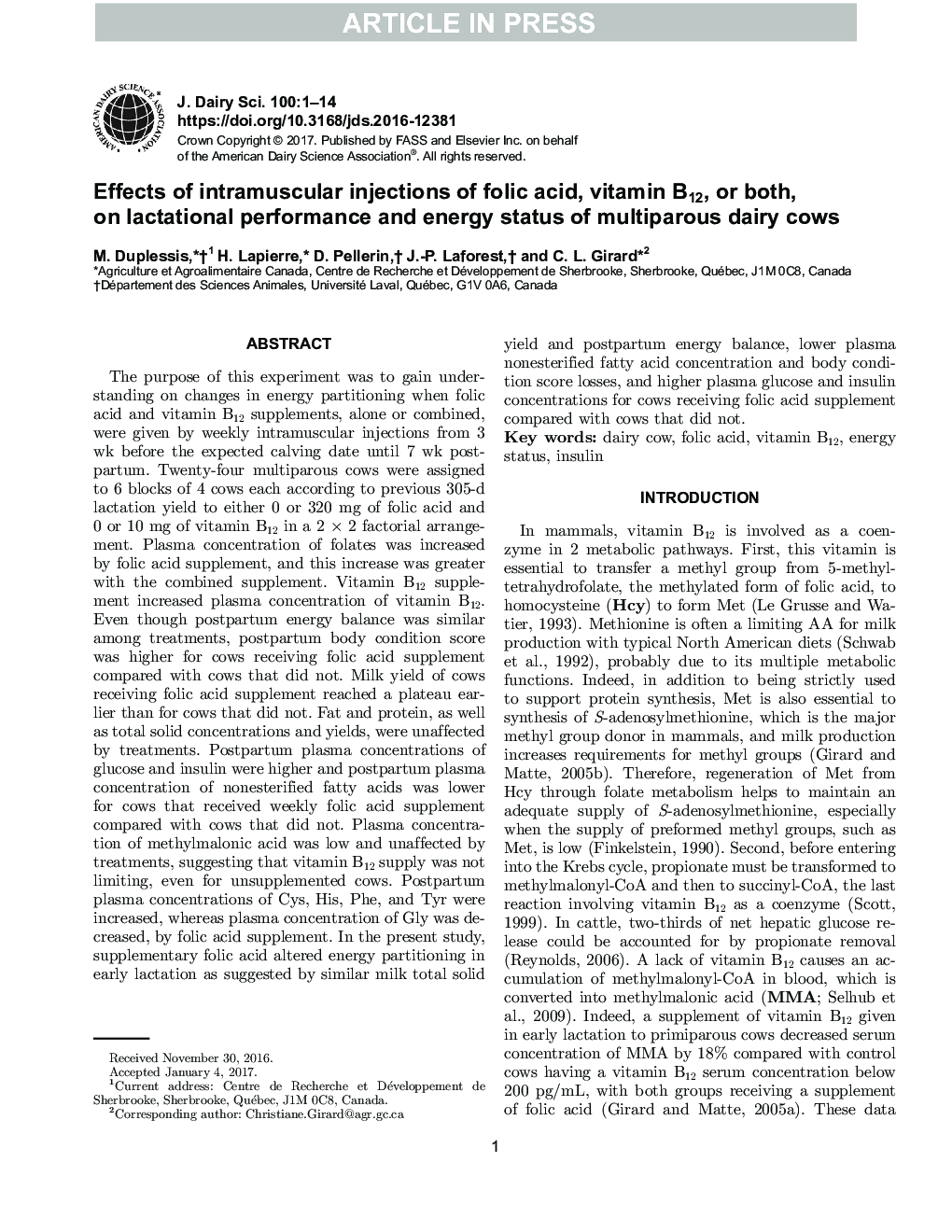| Article ID | Journal | Published Year | Pages | File Type |
|---|---|---|---|---|
| 5542199 | Journal of Dairy Science | 2017 | 14 Pages |
Abstract
The purpose of this experiment was to gain understanding on changes in energy partitioning when folic acid and vitamin B12 supplements, alone or combined, were given by weekly intramuscular injections from 3 wk before the expected calving date until 7 wk postpartum. Twenty-four multiparous cows were assigned to 6 blocks of 4 cows each according to previous 305-d lactation yield to either 0 or 320 mg of folic acid and 0 or 10 mg of vitamin B12 in a 2 Ã 2 factorial arrangement. Plasma concentration of folates was increased by folic acid supplement, and this increase was greater with the combined supplement. Vitamin B12 supplement increased plasma concentration of vitamin B12. Even though postpartum energy balance was similar among treatments, postpartum body condition score was higher for cows receiving folic acid supplement compared with cows that did not. Milk yield of cows receiving folic acid supplement reached a plateau earlier than for cows that did not. Fat and protein, as well as total solid concentrations and yields, were unaffected by treatments. Postpartum plasma concentrations of glucose and insulin were higher and postpartum plasma concentration of nonesterified fatty acids was lower for cows that received weekly folic acid supplement compared with cows that did not. Plasma concentration of methylmalonic acid was low and unaffected by treatments, suggesting that vitamin B12 supply was not limiting, even for unsupplemented cows. Postpartum plasma concentrations of Cys, His, Phe, and Tyr were increased, whereas plasma concentration of Gly was decreased, by folic acid supplement. In the present study, supplementary folic acid altered energy partitioning in early lactation as suggested by similar milk total solid yield and postpartum energy balance, lower plasma nonesterified fatty acid concentration and body condition score losses, and higher plasma glucose and insulin concentrations for cows receiving folic acid supplement compared with cows that did not.
Related Topics
Life Sciences
Agricultural and Biological Sciences
Animal Science and Zoology
Authors
M. Duplessis, H. Lapierre, D. Pellerin, J.-P. Laforest, C.L. Girard,
